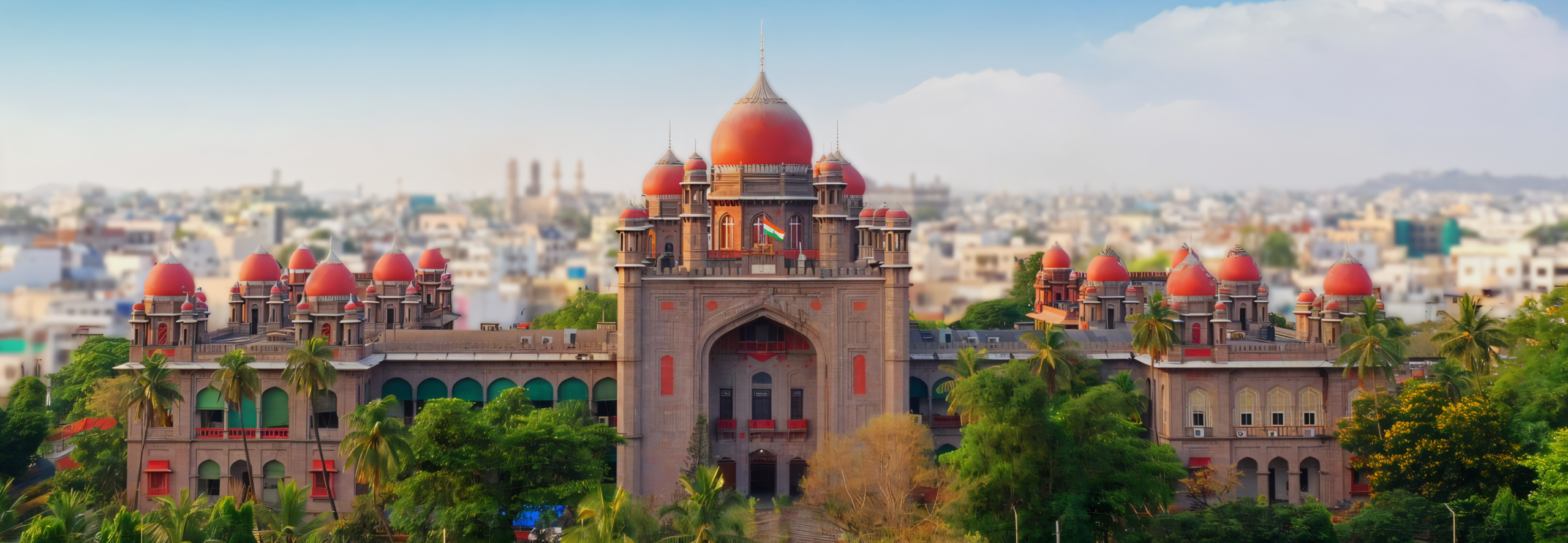Hyderabad, September 18, 2025 – In a significant development concerning education reforms in Telangana, the High Court on Thursday heard a Public Interest Litigation (PIL) seeking complete transparency in the fee structure of private schools across the state. The PIL demands that all private schools publish their Statements of Accounts, including detailed Income and Expenditure Statements, in the public domain as mandated under the Right to Education (RTE) Act, 2009.
The case, PIL No. 66 of 2025, was filed by social activist Mallikarjun Patil and argued by advocate Vijay Gopal. The PIL highlights the exorbitant fee structure of private schools, particularly in Hyderabad, where even kindergarten fees reportedly range between ₹1.8 lakh and ₹2.4 lakh annually.
The petitioner alleged that for over 15 years, the School Education Department has failed to enforce RTE provisions, showing “complete negligence and disregard” towards child rights in Telangana.
“The law clearly mandates private schools to maintain transparency by publicly disclosing their financial statements. This is to ensure that schools do not engage in profiteering at the cost of parents and children. Unfortunately, despite repeated representations, no action has been taken by the authorities,” said Advocate Vijay Gopal while addressing the court.
A division bench headed by the Chief Justice took cognizance of the matter and observed that the issue of RTE implementation has been a recurring concern. The bench decided to club this PIL with other similar petitions that challenge the lack of effective enforcement of the RTE Act in the state.
Growing Concerns Over Private School Fees
The PIL comes at a time when many parents across Hyderabad and other urban areas have been expressing distress over rising school fees. In several reputed schools, the annual fee for lower kindergarten (LKG) or upper kindergarten (UKG) is now on par with or even higher than university tuition fees.
Parent associations and child rights activists have repeatedly alleged that many private schools charge hidden fees, including for building funds, digital classrooms, uniforms, and even extracurricular activities, often in violation of the RTE norms.
What the RTE Act Mandates
Under the RTE Act, private unaided schools are required to:
- Publicly display their income and expenditure statements each year.
- Ensure transparency in fee structures to prevent profiteering.
- Allocate 25% of seats for students from economically weaker sections (EWS) with reimbursement from the state government.
The PIL claims that these legal provisions have been grossly violated, with little or no monitoring from the School Education Department, leading to unchecked commercialization of education.
Court’s Direction and Next Hearing
While no immediate interim order was issued, the Chief Justice noted that the matter involves larger questions of child rights and public interest. The bench indicated that it will hear the case in detail along with other similar petitions at the next scheduled hearing.
The outcome of this case could potentially impact thousands of private schools across Telangana and bring relief to lakhs of parents struggling with high fees.
If the court directs strict enforcement of RTE provisions, it may compel schools to disclose their financials publicly and justify their fee hikes in a transparent manner.


